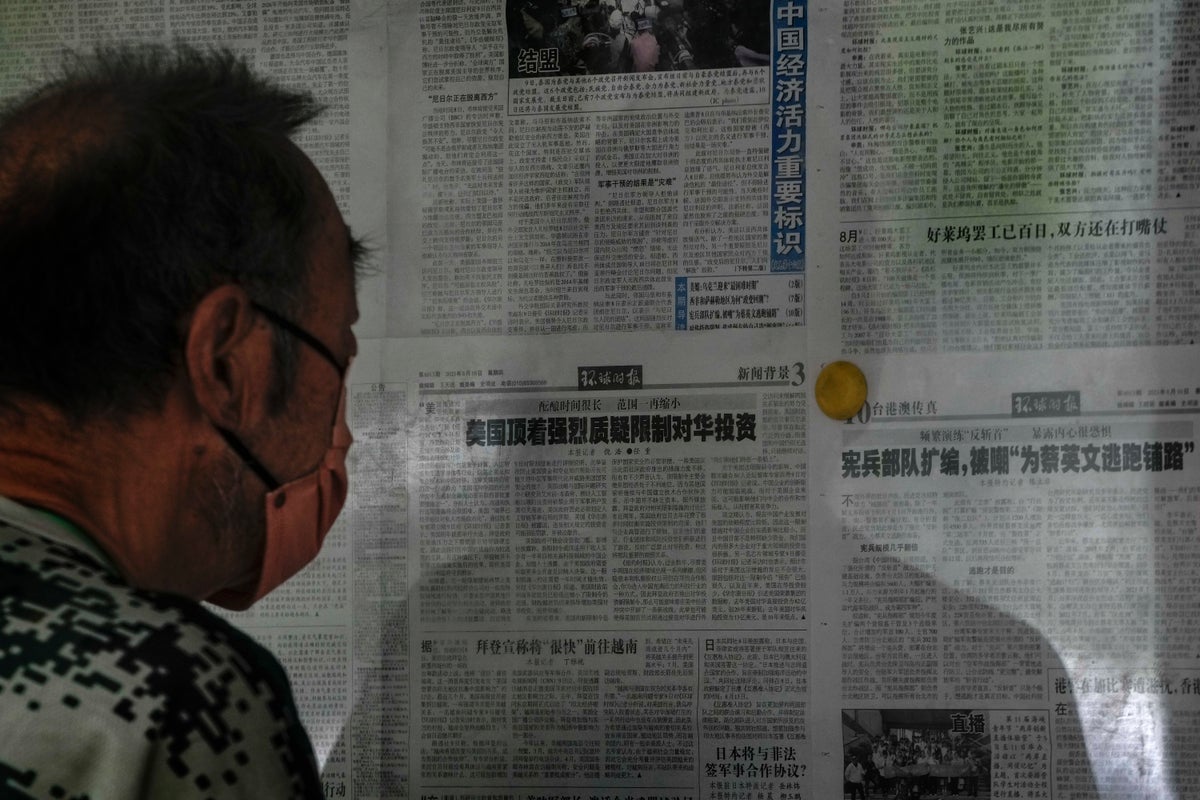China accuses US of trying to block its development and demands that technology curbs be repealed


China accused Washington on Thursday of trying to block its development after President Joe Biden stepped up a feud over technology and security by tightening controls on U.S. investments that might help Beijing develop its military.
The Foreign Ministry accused the Biden administration of pursuing “technology hegemony” and demanded Washington “immediately revoke its erroneous decision.” It warned that the latest restrictions in a spreading conflict over Beijing’s industrial development would hurt global supply chains.
An order signed by Biden on Wednesday targets advanced computer chips, micro electronics, quantum information technologies and artificial intelligence. The order says it wants to limit U.S. investment in industries that might help develop the ruling Communist Party’s military wing.
The order adds to restrictions that limit Chinese access to U.S. processor chips used in smartphones, artificial intelligence and other technology on security grounds. Dozens of Chinese companies that Washington says are linked to military modernization are barred from American financial markets.
Washington’s “true purpose is to deprive China of its development rights and maintain its own hegemony,” the Foreign Ministry said.
China will “resolutely safeguard its own rights and interests,” the Ministry of Commerce said in a separate statement, but it gave no indication of possible retaliation. Beijing has made similar comments after previous U.S. trade restrictions but usually takes no action.
At a fundraiser for his reelection campaign in Utah on Thursday, Biden mentioned the issue, saying “we have China to deal with” and calling that country “a ticking time bomb in many cases” while also making it clear he wasn’t looking for a fight.
“They’ve got some problems,” Biden said. “And that’s not good because when bad folks have problems they do bad things.”
He did not elaborate.
The Biden administration has imposed sanctions while trying to revive U.S.-Chinese relations that are at their lowest level in decades due to disputes over security, human rights, technology, Taiwan and Beijing’s treatment of Hong Kong.
Treasury Secretary Janet Yellen visited Beijing in July and said communication would increase but announced no agreements on disputes. Chinese leaders have demanded the United States change its policies on Taiwan and other issues but have given no indication they might change trade and other policies that irk Washington and China’s Asian neighbors.
Chinese leader Xi Jinping’s government has announced only small steps to retaliate for Western tech restrictions, possibly to avoid disrupting a multibillion-dollar campaign to create its own processor chip, artificial intelligence and other technology industries.
Chinese rules that took effect Aug. 1 require exporters of gallium and germanium, two metals used in computer chips and solar cells, to obtain government licenses. The announcement rattled Japanese and South Korean electronics manufacturers.
The conflict has prompted fears of “decoupling,” or the world splitting into separate industrial markets with conflicting standards that mean electronics, auto and other products and components from one couldn’t be used in the other. That might hamper innovation and economic growth.
Yellen and other U.S. officials say they don’t want “decoupling” but are pursuing “de-risking.” They say that includes developing additional sources of raw materials, industrial components and consumer goods to avoid disruptions like those during the COVID-19 pandemic.
The Ministry of Commerce accused Washington of “using the cover of ‘risk reduction’ to carry out ‘decoupling and chain-breaking.’”
At the same time, Xi’s government, citing strategic risks, has pressed Chinese industries to use domestic suppliers whenever possible, even when that raises costs. Xi has called for China to become a self-reliant “technology power.”
Anxiety about China’s military has increased as Beijing sends fighter planes to intimidate Taiwan, the self-governed island claimed by the Communist Party as part of its territory, and presses claims to parts of the South and East China Seas.
U.S. officials said the new limits were tailored not to disrupt China’s economy but would complement export controls on advanced computer chips.
U.S. investors would be required to notify the government about certain transactions with China. Some would be prohibited.
Officials said the order focuses on areas such as private equity, venture capital and joint partnerships in which the investments could possibly give countries of concern such as China additional knowledge and military capabilities.
In July, the Senate approved a requirement to monitor and limit investments in countries of concern, including China.




